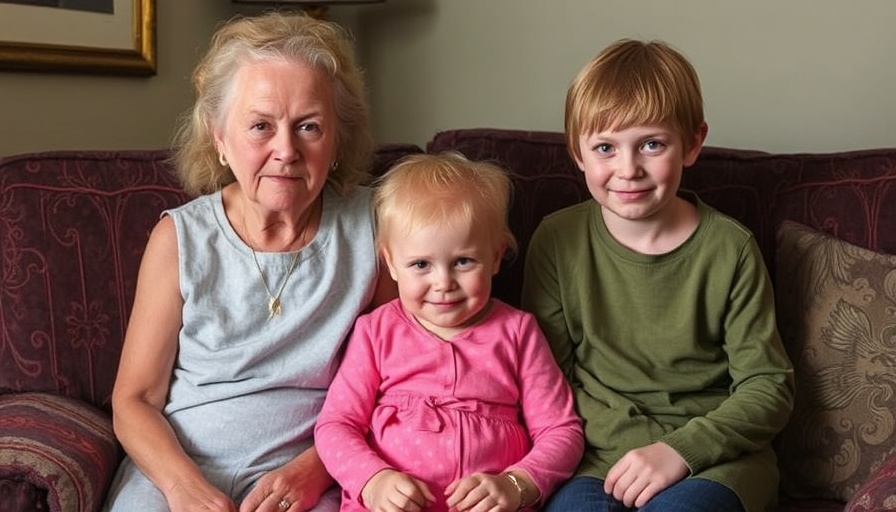
A Grieving Widow's Journey
Mary Ann Kenny's life was upended in April 2015 when she lost her husband, John, unexpectedly to a heart condition. Just three days after her 50th birthday, her world transformed from a picture of stability into one filled with grief and uncertainty. "My entire life came to a stop," she reflects on the devastating moment when the police officer delivered the news that John was dead.
From Despair to Delusion: The Impact of Grief
As she navigated through her profound sorrow, Kenny found herself feeling immense pressure to maintain normalcy for her two young children. Despite her initial attempts to seek help through therapy and medication, her mental health spiraled. In her quest for healing, she took sertraline, an antidepressant, which triggered a severe reaction. "I was drenched in sweat, weak with nausea, and my legs and arms were prickling all over," she vividly recounts in her book, The Episode.
The Dangers of Mental Health Mismanagement
For Kenny, the experience serves as a cautionary tale about the fine line between seeking help and the complications that can arise from medication. Mental health struggles often exacerbate in times of severe grief, and for many, the prescriptions intended to offer relief can lead to further distress. Kenny’s experience highlights the necessity for better awareness and education around mental health treatment options, particularly post-loss.
Understanding Grief: A Normal Response to Loss
Grief is a universal yet profoundly personal experience. Experts stress that it's normal to feel a rollercoaster of emotions as one processes loss. Understanding this can be comforting for those in Kenny’s shoes. Many experts suggest that rather than rushing into medication, individuals should explore supportive communities, therapy, mindfulness meditation, and natural health practices to foster healing. A balanced approach to mental health is critical and can serve as an antidote to the isolation often felt in grief.
Realizing the Need for Community Support
Kenny's struggle underscores the significance of social connections and support networks during difficult times. Engaging with friends, family, or support groups can provide a sense of belonging and understanding. For many, these connections can be more beneficial than medications alone. They offer emotional backing and shared experiences, which are invaluable during times of crisis.
Exploring Holistic Approaches for Healing
In the wake of her challenging experiences, Kenny's story poses critical questions about alternative health and wellness strategies. Holistic approaches, such as incorporating herbal remedies, nutrition, and mindfulness practices, can enhance mental well-being. Practices like yoga, meditation, and engaging in physical activity are known to boost mental health and can serve as complementary healing avenues alongside medical interventions.
Looking Ahead: Mental Health Advocacy
Kenny's journey serves as an essential reminder of the importance of mental health advocacy. By sharing her story, she illuminates the need for ongoing conversations about grief and mental health. It encourages individuals to seek not only traditional treatments but also supportive and holistic options that contribute to overall well-being.
It is vital for readers to remember that taking charge of one's mental health and wellness can be a profound journey. A combination of community support, understanding grief's complexities, and exploring both conventional and holistic practices can lead towards healing.
Take Your First Steps Toward Wellness
As we learn from Mary Ann Kenny's experience, mental health and wellness should be approached with a holistic mindset. Consider exploring natural supplements or stress relief strategies to bolster your mental well-being. Embrace a lifestyle focused on health and mindfulness that prioritizes your whole body wellness.
 Add Element
Add Element  Add Row
Add Row 



Write A Comment